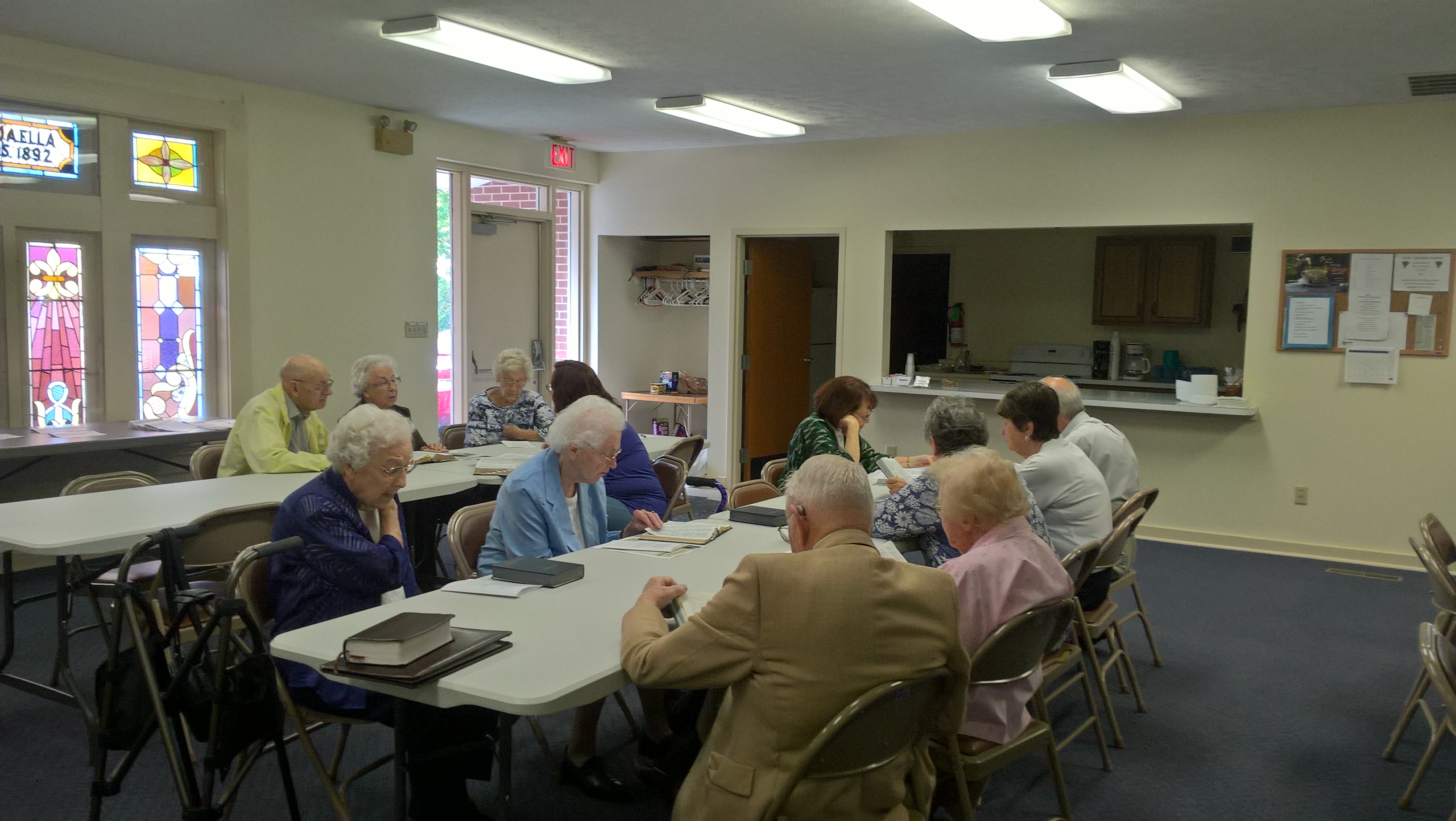Week 2: Study of Isaiah, Chapters 2-5
 We had a great conversation on these early chapters of Isaiah. We began with a discussion that acknowledged what a difficult text this is. One theologian I read said, "If Isaiah doesn't give you a headache, you're not reading it right!"
We had a great conversation on these early chapters of Isaiah. We began with a discussion that acknowledged what a difficult text this is. One theologian I read said, "If Isaiah doesn't give you a headache, you're not reading it right!"
It is sometimes hard to feel at home in the Old Testament, where we come face to face with a sense of God-as-smiter. This is an angry picture of a God who is frustrated with the children he has called to be his own. They don't value relationship with him in the way he desires, and he's all but done with them. Isaiah's prophecy is an invitation to recognize and repent for their self-absorbed, God-alienating ways.
Click here for the Week 2 Study Guide
After our opening conversation about our reactions to the readings this week, we broke down the selection and discussed what we heard in several thematic sections.
First, we explored the beautiful imagery in the initial message of the "Future House of God." The early verses of Chapter 2 are often said to foreshadow the coming of the messiah. As part of this beautiful image, we hear that the people are willing to be taught, and they turn toward God as their source of wisdom.
We also hear of a fair God, a God who will "judge between the nations" and who desires and promotes peace.
But in the middle of Chapter 2, things take a darker turn. We learn that the people are hard-hearted and arrogant. They allow many things to come between them and their relationship with God, causing separation. In our discussion we identified these:
- Self-absorbed
- Looking toward other gods; influenced by other traditions
- Focused on accumulating a lot of wealth
- Bowing down to idols
- Losing the uniqueness of their tradition
In Chapter 3, we read discouraging and even alarming things--especially given the devastation this week in Puerto Rico! Chapter 3 of Isaiah is all about how as part of God's response to these wayward people, the good governance of the people will be removed. The entire social order will be disrupted. Some of the effects of the absence of true leadership that Isaiah prophecies:
- Bread and water
- Support and staff
- Leaders of all types “soldiers, judges, prophets, elders, even magicians and enchanters”
- Good leadership will be turned upside-down: “I
will make boys their princes and babes will rule
over them” - People will exploit one another, even social rules within the clan will be violated
- Those with healing or leading gifts will turn away; none will choose to be good leaders of the people
Toward the end of Chapter 3, Isaiah says that God comes to plead his case. (We found this hopeful--God is still involved; God still cares for the right outcome; God is still watching over those who need him and trust in him) and in Chapter 4, we are once again shown a glimpse of the promise of being back in good relationship with God.
Our reading this week ended with Chapter 5, which is often called the "Song of the Unfruitful Vineyard." In this metaphor, God has planted a beautiful vineyard and expects great things, but the grapes grow up wild and bitter. We talked about what if feels like to be in a relationship that is one-sided, where one person does all the giving and the other all the taking. Can that relationship get healthy again? What needs to happen for a just and healthy balance to arise?
In our discussion questions this week, we considered:
1. How do you imagine the people of Isaiah’s day—kings and couriers, people of power in the land—would have received Isaiah’s message?
- Answers suggested that the people of the day likely didn't know what to think of Isaiah's message. It's possible that they saw themselves as beyond reproach because they felt like a chosen people. It's also possible that some took it to heart.
2.How might we bring this teaching to our personal lives? How does it speak to our condition today?
- Here we discussed how we might try to relate this scripture to our own lives in this modern time.
- We can seek to avoid greed and whatever separates us from God.
- We can care for those overlooked, exploited, or crushed by the system.
- We can be a balm to those who are anxious about the breakdown of societal systems and pray for peace.
3. What do you hear about God in this section? How does that fit with an image of a loving God?
- We have a problem reconciling the God of the Old Testament with the God of the New Testament
- As a parent, we learn with our children when to be loving and gracious, and when to draw lines and set boundaries/consequences.
- It's possible instead of reading Isaiah with images of an angry God, we could hear God as parent saying, "You're better than this!" and calling us to repent and be better.
Our next class, on October 1, 2017 at 9:30am, will focus on Chapter 6 of Isaiah. We hope to see you then!